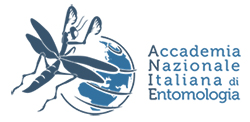
E.O. Wilson, former professor at Harvard University for 46 years, died on 26 December 2021
The impact that Edward O. Wilson has had on the understanding of Social Biology is difficult to measure given the breadth of his work and the articulation of his thought. His work evolved from the study of the complexity of the ant world to the formulation of sociobiological disciplines, to his commitment to the defence of biodiversity, to the exploration of man’s biological future and his place in nature.
There are countless contributions from scientists all over the world about his life and scientific output, so in this context I want to limit myself to the direct experiences I had with him. One of his most famous books, ‘The Societies of Insects’, was for me, a young student, a portal that introduced me to a world of endless scientific opportunities, within which other masters, such as Leo Pardi and MJ West Eberhard, refined my interests in the particular group of social wasps. His 1975 book, ‘Sociobiology’, together with the work of W. Hamilton, represented the beginning of a period, which lasts to this day, in which the study of the social behaviour of animals and humans was completely based on the theory of evolution and natural selection, attracting quite a bit of criticism, especially from non-biologists.
Leo Pardi Wilson, whom I had the pleasure of accompanying as a cicerone in a Florence that was preparing to celebrate the 20th World Congress of Entomology in 1996 with his inaugural speech, was a fervent admirer. An extremely ductile scientist and attentive to the history of science, he wanted on that occasion to visit Galileo’s house in the hills of Florence, later commenting on that visit in a letter of thanks that made me proud of my group’s scientific activity. I met him again at the Washington Congress on Social Insects in 2006, where Wilson began a review of his activities: from Island Biogeography to the development of sociobiology and conservation biology; always passing through the study of his beloved ants. I remember sitting across from each other for lunch and securing another memorable lecture on the evolution of sociality. This meeting also gave rise to the idea of establishing a specific course in Sociobiology in the Faculty of MFN Sciences at the University of Florence, a course that still attracts students from all over Italy.
He was an affable and seemingly shy person, but ready to revise his views because of new data and evidence. His partial retraction of the theory of Inclusive Fitness, which was at first unconditionally supported, caused a stir but I consider it a contribution to the broadening of the multilevel view of social evolution, particularly human evolution.
